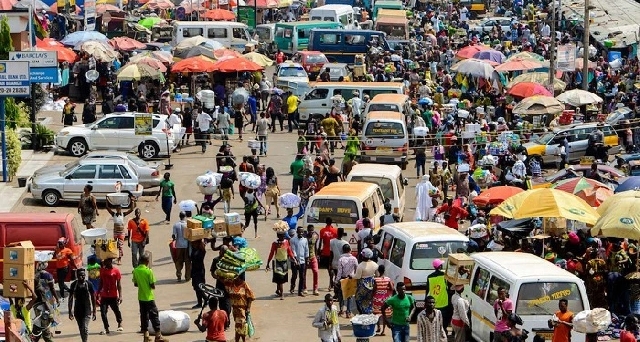ISSER asks: Will 24-hr economy create more jobs, higher GDP or it’s a long-term goal?
 Mr Mahama has promised to institute a 24-hour economy if he returns to power
Mr Mahama has promised to institute a 24-hour economy if he returns to power
The director of the Institute of Statistical, Social, and Economic Research (ISSER), Professor Peter Quartey, has wondered: “Will a 24-hour economy serve as the solution or is it premature?” suggesting: “What about incorporating it into a long-term development plan?”
Also, Professor Quartey noted: “The argument is, will a 24-hour economy bring higher GDP and jobs, or is it rather a goal we should aim for in the long term?”
The 24-hour economy proposal was put forward by former President John Mahama, who is the flagbearer of the main opposition National Democratic Congress.
Speaking on the proposal, Professor Quartey pointed out that: “Limited energy supply to power all sectors in 24 hours, especially manufacturing,” risks hindering industries’ ability to operate continuously, especially at competitive levels within the sub-region.
On security, he said with extended hours, ensuring the safety of night workers would require “adequate security personnel to protect those working late into the night,” adding that this would need significant investment in security infrastructure.
Concerning market demand and competitiveness, Prof Quartey wondered if sufficient demand exists to sustain 24-hour operations, especially in sectors like manufacturing.
“Will there be demand if factories operate 24 hours?” he questioned, adding that Ghana’s industries must also be competitive regionally.
Additionally, Prof Quartey raised doubts about the availability of essential infrastructure, including water and road networks, to support continuous operations. “Do we have adequate infrastructure?” he asked, pointing out that without necessary improvements, a 24-hour economy could strain existing systems.
He said aligning manifesto promises with a pragmatic, long-term development strategy is essential and urged policymakers to carefully evaluate the nation’s infrastructure and security readiness, energy capacity, and market demands before committing to a 24-hour economy.
“This approach needs to be grounded in a robust, long-term plan if we are to realise sustainable economic growth,” he said.
Trending Business

IBAG reflects on a “mixed year” as industry records major wins
11:46
Domestic tourism spending hits GH₵6.59bn in 2023 - GSS
08:55
Bank of Ghana holds post-MPC engagement with bank CEOs after 127th meeting
03:53
Ghana's Cybele Energy makes history with offshore Guyana oil block deal
12:53
IBAG elects new executives at 12th general meeting
04:57
First Atlantic Bank PLC set for official listing on the Ghana Stock Exchange
12:46
SIC Managing Director James Agvenim-Boateng honoured by IBAG
05:34
IMF technical mission engages Ghana on implementing governance reforms
05:08
GoldBod Jewellery, GTA launches December homecoming promotion for diaspora visitors
17:15
Global cocoa prices soared, but Ghanaian farmers gained little – Randy Abbey
15:40



